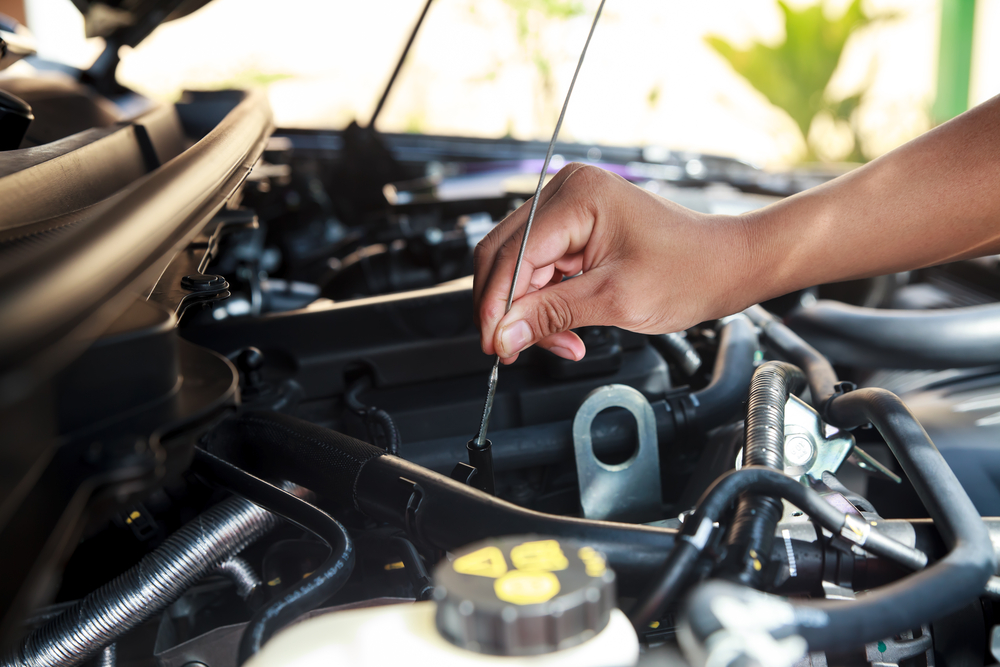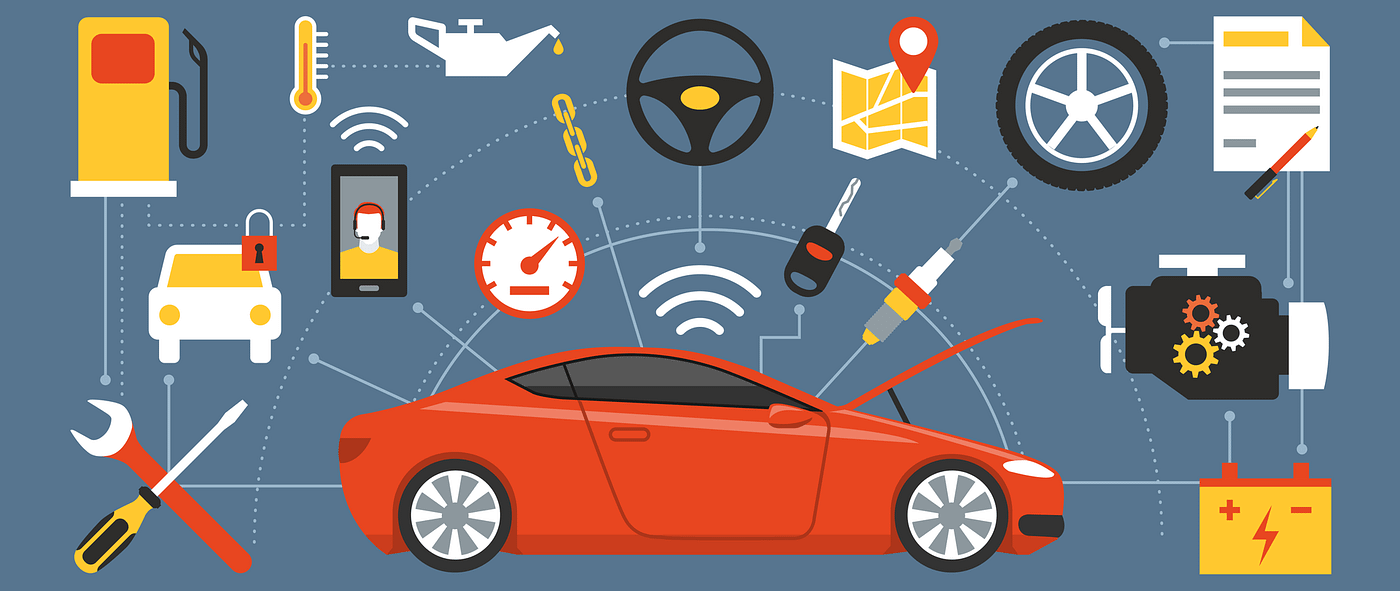All Categories
Featured
Accountable for integrating the turning of the crankshaft and camshaft, the timing belt ensures the engine's valves open and close at the proper times during the burning process. If the timing belt falls short, it can result in severe engine damage.
What Is a Timing Belt? The timing belt is a long, toothed rubber or composite belt that connects the crankshaft to the camshaft(s) in an interior combustion engine. Its job is to keep the engine's shutoffs and pistons in sync, making certain the engine runs efficiently. The timing belt also controls other crucial engine functions like the water pump and the power steering pump, depending upon the vehicle.
![]()
Without the correct timing, the engine's pistons and shutoffs can collide, resulting in comprehensive and expensive damages. Consequently, changing the timing belt on time is just one of the best ways to ensure your engine operates at its ideal and protect against expensive repairs.
Why Timing Belt Substitute Matters. Protecting Against Catastrophic Engine Damages: The most significant threat of not replacing a worn timing belt is engine failing. Changing the timing belt at the recommended intervals is the finest means to prevent such tragic damage, conserving you from the stress and high price of engine repair services or replacement.
![]()
Maintaining Engine Performance: A timing belt that's in excellent problem makes certain that all engine parts work in best harmony. If the timing belt is put on or stretched, it can trigger the engine to shed power, experience harsh idling, or battle to begin. By replacing the timing belt frequently, you can keep your engine performing at peak performance, which assists maintain ideal gas economic situation and efficiency.
Preventing Unexpected Break downs: A damaged timing belt can trigger your engine to stop suddenly, potentially leaving you stranded in the center of a trip. By replacing your timing belt in a timely manner, you decrease the threat of abrupt break downs that can leave you in a troublesome or risky scenario. Normal upkeep minimizes the possibilities of experiencing these kinds of disturbances, aiding you stay on the roadway much longer without fretting about your engine failing.
Economical Maintenance: Timing belt substitute is much less expensive than fixing or changing an engine that's been damaged due to a timing belt failing. While the price of changing the timing belt might vary depending on your lorry and its area, it is much more cost effective than the costs related to significant engine repair services or substitutes. Replacing your timing belt at the recommended periods can conserve you a substantial amount of money over the long run by stopping damages to your engine.
When Should You Replace Your Timing Belt? The timing belt doesn't last forever, and most producers recommend changing it in between 60,000 and 100,000 miles. The exact timing depends on your automobile's make, version, and driving conditions, so it's vital to examine your proprietor's guidebook for certain guidance.
Indicators that your timing belt may need focus consist of unusual engine sounds (such as a piercing whining or ticking sound), difficulty starting the engine, or a decline in engine performance. If you observe any one of these indicators, it's important to have the timing belt evaluated by a professional mechanic.
![]()
Final thought. The timing belt is a crucial but tiny part of your engine, and regular substitute is key to keeping your lorry's performance and stopping pricey damage. By remaining on top of timing belt upkeep, you'll ensure your engine runs effectively, stay clear of unexpected break downs, and shield your cars and truck from major repair work. Watch on your lorry's suggested timing belt replacement timetable, and always speak with a trusted technician to keep your engine running efficiently for years to find.
What Is a Timing Belt? The timing belt is a long, toothed rubber or composite belt that connects the crankshaft to the camshaft(s) in an interior combustion engine. Its job is to keep the engine's shutoffs and pistons in sync, making certain the engine runs efficiently. The timing belt also controls other crucial engine functions like the water pump and the power steering pump, depending upon the vehicle.

Without the correct timing, the engine's pistons and shutoffs can collide, resulting in comprehensive and expensive damages. Consequently, changing the timing belt on time is just one of the best ways to ensure your engine operates at its ideal and protect against expensive repairs.
Why Timing Belt Substitute Matters. Protecting Against Catastrophic Engine Damages: The most significant threat of not replacing a worn timing belt is engine failing. Changing the timing belt at the recommended intervals is the finest means to prevent such tragic damage, conserving you from the stress and high price of engine repair services or replacement.

Maintaining Engine Performance: A timing belt that's in excellent problem makes certain that all engine parts work in best harmony. If the timing belt is put on or stretched, it can trigger the engine to shed power, experience harsh idling, or battle to begin. By replacing the timing belt frequently, you can keep your engine performing at peak performance, which assists maintain ideal gas economic situation and efficiency.
Preventing Unexpected Break downs: A damaged timing belt can trigger your engine to stop suddenly, potentially leaving you stranded in the center of a trip. By replacing your timing belt in a timely manner, you decrease the threat of abrupt break downs that can leave you in a troublesome or risky scenario. Normal upkeep minimizes the possibilities of experiencing these kinds of disturbances, aiding you stay on the roadway much longer without fretting about your engine failing.
Economical Maintenance: Timing belt substitute is much less expensive than fixing or changing an engine that's been damaged due to a timing belt failing. While the price of changing the timing belt might vary depending on your lorry and its area, it is much more cost effective than the costs related to significant engine repair services or substitutes. Replacing your timing belt at the recommended periods can conserve you a substantial amount of money over the long run by stopping damages to your engine.
When Should You Replace Your Timing Belt? The timing belt doesn't last forever, and most producers recommend changing it in between 60,000 and 100,000 miles. The exact timing depends on your automobile's make, version, and driving conditions, so it's vital to examine your proprietor's guidebook for certain guidance.
Indicators that your timing belt may need focus consist of unusual engine sounds (such as a piercing whining or ticking sound), difficulty starting the engine, or a decline in engine performance. If you observe any one of these indicators, it's important to have the timing belt evaluated by a professional mechanic.

Final thought. The timing belt is a crucial but tiny part of your engine, and regular substitute is key to keeping your lorry's performance and stopping pricey damage. By remaining on top of timing belt upkeep, you'll ensure your engine runs effectively, stay clear of unexpected break downs, and shield your cars and truck from major repair work. Watch on your lorry's suggested timing belt replacement timetable, and always speak with a trusted technician to keep your engine running efficiently for years to find.
Latest Posts
Comprehensive Protection for Your Assurance
Published Apr 19, 25
1 min read
Unlock Greater Incomes with WyHy Cash Market Accounts
Published Apr 19, 25
1 min read
Budget-Friendly Car Services: Skilled Repairs for Less
Published Apr 19, 25
2 min read